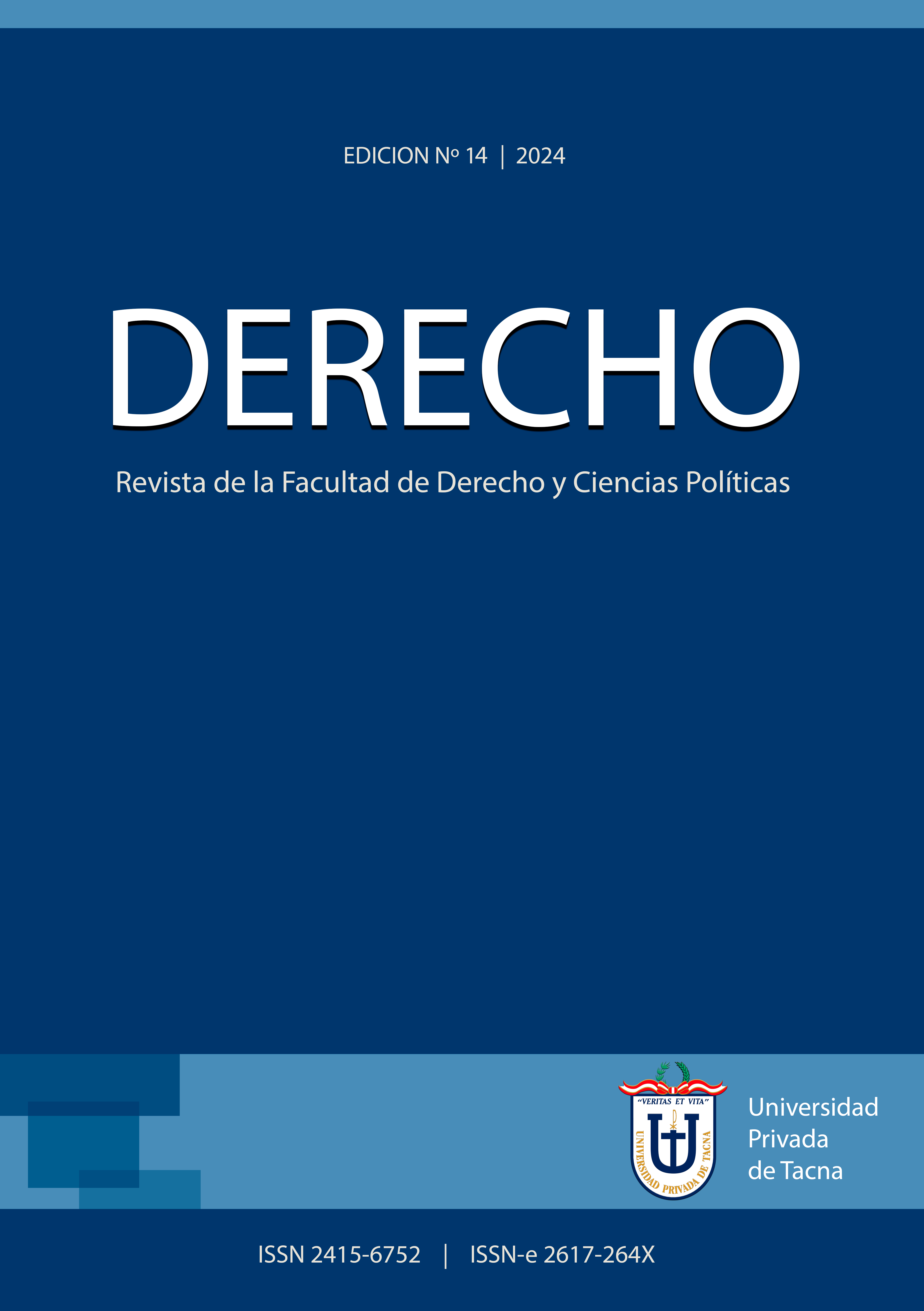Self-defense: A right or a risk? Law n° 32026 in debate
DOI:
https://doi.org/10.47796/derecho.v14i14.943Keywords:
Self-defense, legal goods, proportionality, impunityAbstract
Self-defense is a legal concept that allows a person to protect themselves or others against an imminent threat of harm or danger, using force that may be proportional to the threat. This right is recognized in many legal systems and, in general terms, implies that a person will not be criminally responsible for acts that he commits in self-defense, as long as certain conditions are met. Self-defense is based on the primary need to save the life, integrity and fundamental rights of people against illegitimate attacks. Self-defense is recognized in the Political Constitution and is regulated in article 20 of the Penal Code, in the chapter corresponding to causes that exempt or mitigate criminal responsibility. Law No. 32026 modifies some requirements of self-defense, highlighting the use of lethal force, actual, illegitimate and real aggression, and the elimination of the proportionality requirement. Self-defense, being a right, provides a series of important aspects, both in the legal and social spheres. However, it has generated certain debates and concerns in relation to the possible risks of its application, such as the increase in violence, difficulty in proving legitimate defense, impunity for aggressors, among others.





